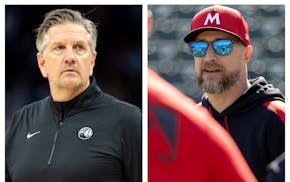Sam Darnold is not part of the Vikings' long-term plan. Not yet, at least.
Brock Purdy wasn't part of anyone's long-term plan. That's why he was the last selection in the 2022 draft.
Darnold played well in his Vikings' debut. Purdy became the 49ers' starter near the end of his rookie season and has kept the job, and last year almost won a Super Bowl.
On Sunday, Darnold and Purdy will face each other at U.S. Bank Stadium in a battle of coupon QBs.
Both are angling for massive, long-term contracts while unintentionally making a case for the affordable quarterback.
Darnold is making $10 million on a one-year contract. Purdy is making $985,000 in the third year of his rookie contract, which is a four-year deal worth $3,737,008.
Their affordability created salary-cap space for their teams to sign other key players, and for the Vikings in particular to be able to add cornerback Stephon Gilmore as a free agent.
Darnold is likely to play elsewhere next year whether he succeeds or fails this season, because the Vikings are planning on J.J. McCarthy, their injured first-round draft pick, taking over as their starter in 2025.
The 49ers will likely have to make a decision on Purdy after this season, so he won't be able to play out his contract in 2025 and become a free agent.
Contrast their deals to those around the league:
The Cowboys' Dak Prescott has a 2-5 record in the postseason and a four-year, $240 million contract.
The Falcons' Kirk Cousins has a 1-4 postseason record and a four-year, $180 million contract.
The Browns' DeShaun Watson has a 1-2 postseason record and a five-year, $230 million contract.
The Jets' Aaron Rodgers is 40 and is in the second year of a three-year, $112.5 million contract.
The Giants' Daniel Jones has a 1-1 postseason record and a four-year, $160 million contract.
Prescott is a productive quarterback who hasn't played in a Super Bowl.
Cousins is an accurate quarterback who hasn't played in a league championship game.
Watson was signed while being accused by dozens of women of sexual assault, and last Sunday looked like he doesn't want to play football.
Rodgers suffered a season-ending injury in his first game with the Jets last year, and looked a bit rusty in his debut this season, a resounding loss to the 49ers.
The Vikings' defense Sunday made Jones look like an amateur.
Given that landscape, could the likes of Darnold and Purdy make a case this season that the best way to build a roster is to find an affordable quarterback?
This isn't about Patrick Mahomes and his 10-year, potentially $503 million contract. He may be the greatest to ever play the position, and he's won three Super Bowls. Given the affluence of the NFL and its teams, he's a bargain.
If you have a true superstar who elevates your franchise, pay him and keep him as long as possible. This applies to Mahomes, Joe Burrow and Josh Allen, and maybe a couple more.
But if you're not sure, should you really invest hundreds of millions of dollars based on the hope that your expensive quarterback will suddenly make a difference in the postseason?
The desperation of NFL teams to land the next Mahomes has led to a lot of them landing the next Christian Ponder.
That desperation fuels some of these ridiculous contracts, and it causes teams to blend hope into their scouting reports. That's why the first three picks in the 2024 draft, and five of the top 10, were quarterbacks.
History suggests that at least three of those five will disappoint.
Finding a star later in the draft is difficult but possible.
Joe Montana was drafted in the third round, as was the once-great Russell Wilson.
Tom Brady was drafted in the sixth round. Kurt Warner wasn't drafted. Prescott and Cousins went in the fourth round. Rodgers slid until far later in the first round than expected.
The most logical way to build an NFL team is to identify your star quarterback, draft him early and never let him go.
But if Darnold and Purdy succeed this year, general managers may want to consider the benefits of finding an affordable quarterback.
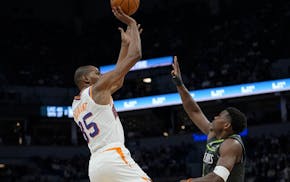
Souhan: Will the Wolves trade for Kevin Durant? Should they?
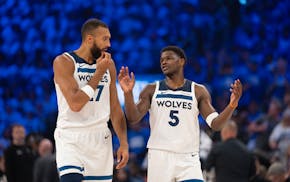
Souhan: If Edwards is a franchise player, he needs to act and play like it
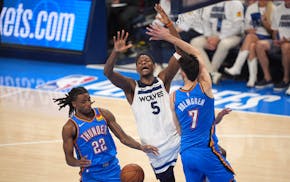
Souhan: Wolves' weak performance in Game 5 invites change, so don't let it shock you
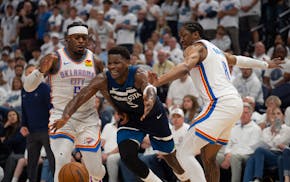
Souhan: Edwards and Randle flop in the Timberwolves' biggest game of the season
